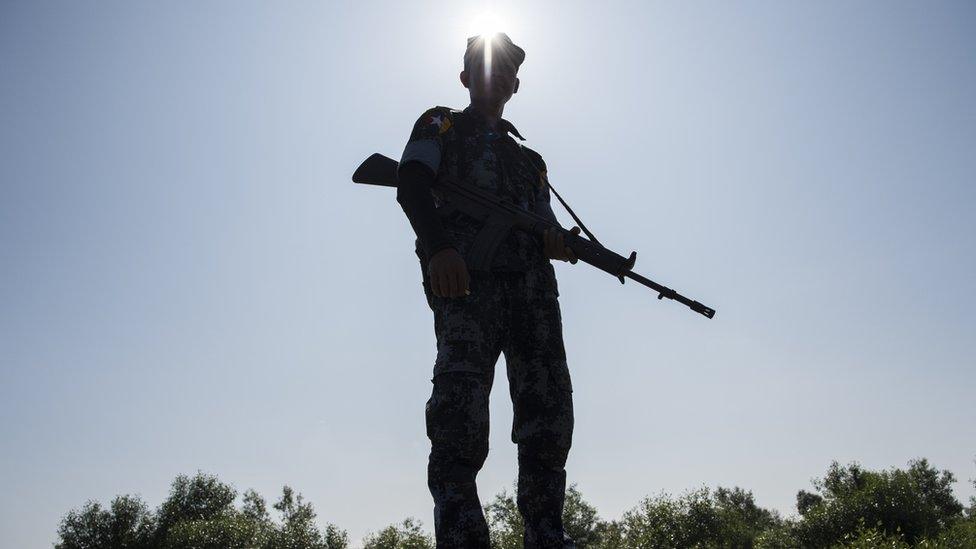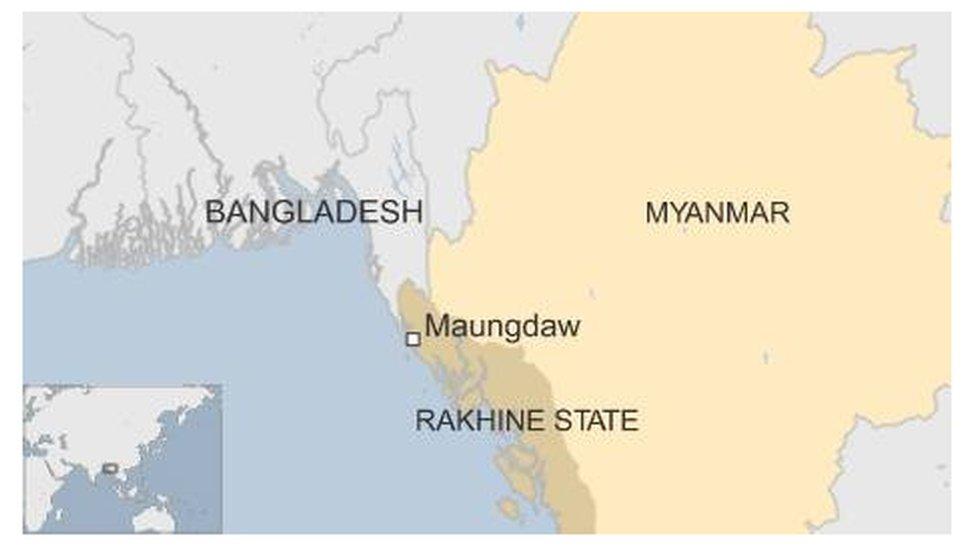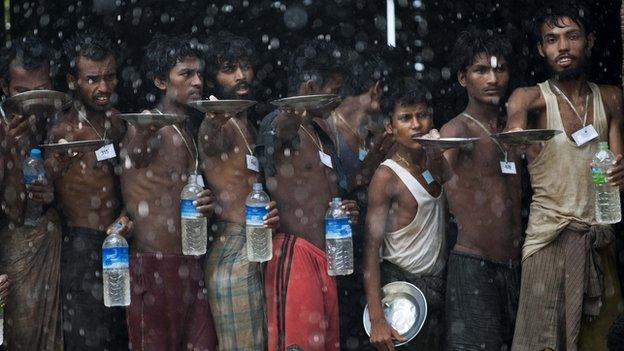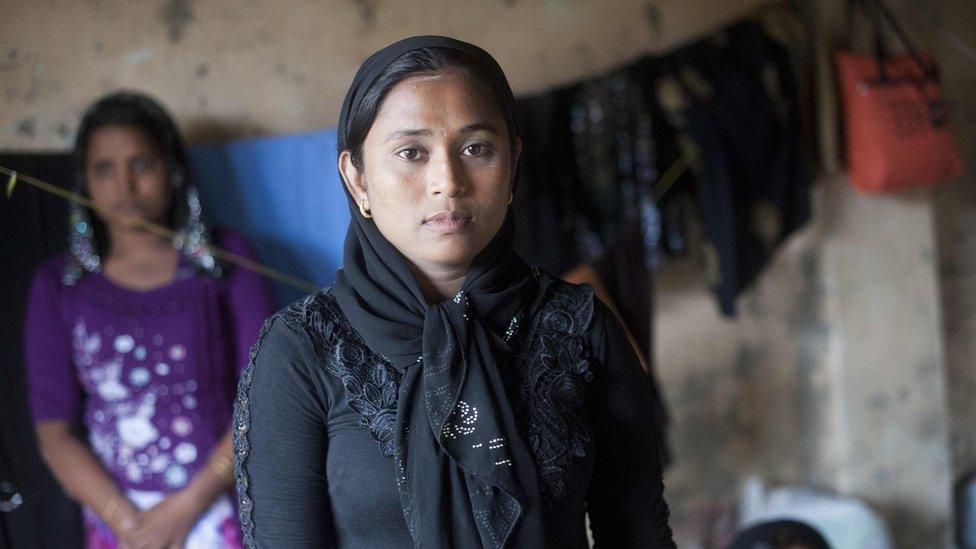Rakhine: Myanmar urged to allow aid into restive state
- Published

Myanmar security forces have sealed off an area of Rakhine state since attacks left nine police officers dead
Human rights groups have called on the government in Myanmar to ensure aid can reach the northern part of restive Rakhine state.
The area, near the border with Bangladesh, has been sealed off by security forces since attacks on border posts left nine police officers dead.
Access to about 50,000 vulnerable people is restricted, the UN says.
Rakhine has seen long-running tensions between Buddhists and the mostly Muslim Rohingya minority.
Since the co-ordinated attacks near Maungdaw earlier this month, army operations have reportedly left at least 30 Rohingya Muslims dead and displaced up to 15,000.
But with journalists banned from the most sensitive areas, these figures are impossible to verify.

Amnesty International and Human Rights Watch (HRW) both issued pleas for the government of Myanmar, previously known as Burma, to do more to allow aid to reach Rohingya populations and other groups.
"The Burmese government has a responsibility to search for and arrest those who attacked the border posts," HRW's Asia director Brad Adams said.
"But it is required to do so in a manner that respects human rights, ensures that the area's people get the aid they need, and allows journalists and rights monitors into the area."
Amnesty said it had heard reports that civilians have been required to cross conflict lines to receive help.
"Civilians cannot be put in a position where they have no other option but to put their lives in harm's way to access much needed aid," said Rafendi Djamin, the organisation's South East Asia and the Pacific director.
Buddhist nationalists in Myanmar see the country's estimated one-million Rohingya as Bangladeshi intruders, despite many having lived in the country for generations.
The government of Myanmar refuses to grant them citizenship.
- Published10 June 2015

- Published24 August 2016
